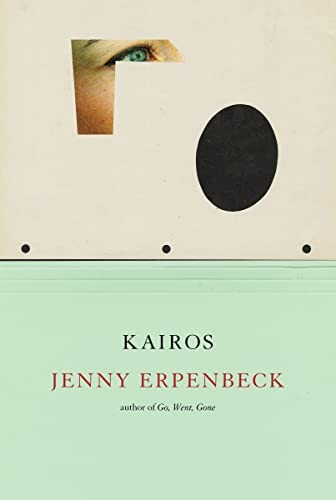336 pages
English language
Published June 24, 2023 by Norton & Company Limited, W. W., New Directions.

336 pages
English language
Published June 24, 2023 by Norton & Company Limited, W. W., New Directions.
Jenny Erpenbeck’s much anticipated new novel Kairos is a complicated love story set amidst swirling, cataclysmic events as the GDR collapses and an old world evaporates Jenny Erpenbeck (the author of Go, Went, Gone and Visitation ) is an epic storyteller and arguably the most powerful voice in contemporary German literature. Erpenbeck’s new novel Kairos―an unforgettably compelling masterpiece―tells the story of the romance begun in East Berlin at the end of the 1980s when nineteen-year-old Katharina meets by chance a married writer in his fifties named Hans. Their passionate yet difficult long-running affair takes place against the background of the declining GDR, through the upheavals wrought by its dissolution in 1989 and then what comes after. In her unmistakable style and with enormous sweep, Erpenbeck describes the path of two lovers, as Katharina grows up and tries to come to terms with a not always ideal romance, even as a …
Jenny Erpenbeck’s much anticipated new novel Kairos is a complicated love story set amidst swirling, cataclysmic events as the GDR collapses and an old world evaporates Jenny Erpenbeck (the author of Go, Went, Gone and Visitation ) is an epic storyteller and arguably the most powerful voice in contemporary German literature. Erpenbeck’s new novel Kairos―an unforgettably compelling masterpiece―tells the story of the romance begun in East Berlin at the end of the 1980s when nineteen-year-old Katharina meets by chance a married writer in his fifties named Hans. Their passionate yet difficult long-running affair takes place against the background of the declining GDR, through the upheavals wrought by its dissolution in 1989 and then what comes after. In her unmistakable style and with enormous sweep, Erpenbeck describes the path of two lovers, as Katharina grows up and tries to come to terms with a not always ideal romance, even as a whole world with its own ideology disappears. As the Times Literary Supplement writes: “The weight of history, the particular experiences of East and West, and the ways in which cultural and subjective memory shape individual identity has always been present in Erpenbeck’s work. She knows that no one is all bad, no state all rotten, and she masterfully captures the existential bewilderment of this period between states and ideologies.” In the opinion of her superbly gifted translator Michael Hofmann, Kairos is the great post-Unification novel. And, as The New Republic has commented on his work as a translator: “Hofmann’s translation is invaluable―it achieves what translations are supposedly unable to do: it is at once ‘loyal’ and ‘beautiful.’”